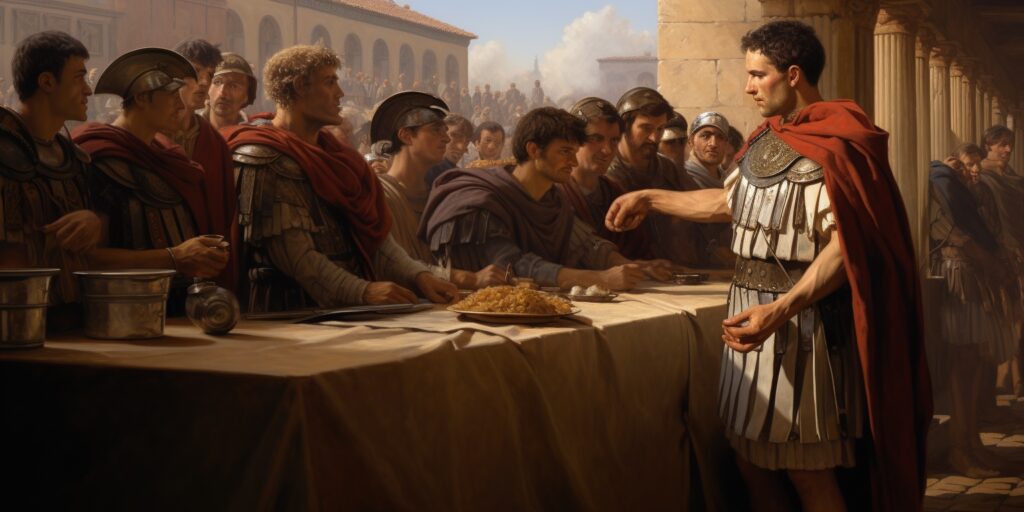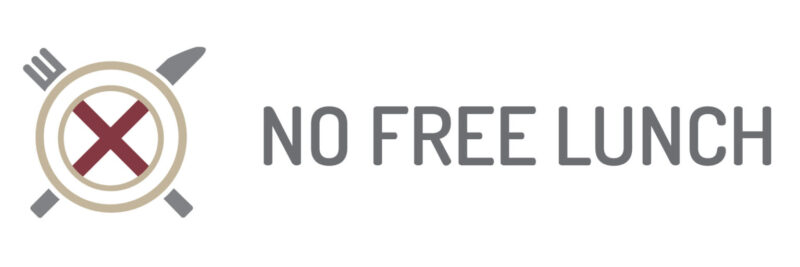Have you heard the story about where the word salary comes from? If it relates to Roman soldiers, I’ve got some bad news. It’s one of the most popular historical myths about money.

There are plenty of myths about money. We all know it doesn’t grow on trees, doesn’t buy you happiness and has nothing to do with the earth’s gyrations. But here are three misconceptions about money you probably weren’t aware of.
Salary, salt & the Roman soldier myth
The meaning of the word salary is obvious to anyone speaking the modern English language. It’s what those lucky enough to have a job receive as payment for their endeavours.
But Google the origin of the word salary, and you’ll likely discover one of the most enduring apocryphal ideas surrounding money. The idea that it’s connected to salt.
Many websites mistakenly declare that the word salary is rooted in the Latin word sale, meaning salt, because, so the story goes, in Ancient Rome, soldiers were partly paid in salt.
Stretching the myth further is another erroneous assumption that the word soldier is a portmanteau of two Latin words – sale and dare – sale meaning salt, and dare the verb ‘to give’.
This idea would make sense if soldiers were paid with the stuff, but this seems like a classic case of reverse engineering.
Though the salt-salary connection to Roman soldiers makes a great story, there’s no historical evidence for this claim.
Linking the word salary to Latin words like ‘salarium’ may also seem plausible, but it is a case of mistaken identity. There is solid evidence that Roman culture valued salt and was keen to acquire it, but its use as money is conjecture.
Check out the Talk section of the Wikipedia entry for salt or this forum post on English Language and Usage to see the direct link between salt and salary pulled apart.
The salary misconception is a great case study of how AI, like ChatGPT, which learns from the internet, can reinforce these types of historical inaccuracies.
The more people that take ChatGPT as truth and slavishly repost the answers they’re given, the more these misconceptions get baked into the training data for future models, perpetuating the myth.
We shouldn’t be surprised about the confusion around the origin of the word salary. Unfortunately, there is no certainty about the origins of the most iconic symbol of money – the dollar.
The myth of barter economies
If you ask the average person in the street how ancient civilisations traded before money, the chances are that most people will give you the stink eye and keep walking, but those willing to engage will probably mention barter.
Barter is the like-for-like exchange of goods and services.
The problem with the idea that barter was commonplace before money is the absence of any historical evidence.
No ethnographic studies have shown that any present or past society has used barter without any other medium of exchange or measurement, and anthropologists have found no evidence that money emerged from barter.
Wikipedia entry for barter
Wikipedia doesn’t have the last word on historical accuracy. Anthropologist David Graeber provided a detailed insight into how local economies functioned before the introduction of money in Debt: The First 5,000 Years, arguing that there is no historical evidence for systematic barter.
Graeber is just one of several monetary historians referenced in an article by The Atlantic – The Myth of the Barter Economy. Its title gives you a strong steer on the feelings of its author, Ilana E Strauss, on the subject.
How culture reflects and reinforces the barter myth
The idea of barter is firmly rooted in modern culture because, at the superficial level, it seems to make sense. The fisherman trades excess catch with the farmer who has excess crops. The problem with the idea comes from what is known as the coincidence of wants.
The fisherman and farmer must both want what the other is offering in equal proportions at exactly the same time, which, if you think about your own purchasing habits (albeit through a historical lens), is unlikely.
Putting aside the mechanics of a fisherman carrying stinky fish around, looking for a farmer who just happens to have a neatly packaged sheaf of wheat, the main issue with barter is that it doesn’t scale, which is what the coincidence of wants is getting at. Why would everyone’s necessities perfectly align, except by coincidence?
As a measure of how far the idea of barter has wormed itself into popular culture, here’s a list of post-apocalyptic films that assume if society collapses, barter will emerge.

Mad Max – Barter In Movies
The Mad Max franchise follows an enigmatic loner, Max Rockatansky, surviving in The Wasteland, a bleak vision of post-apocalyptic Australia.
Civil society has broken down, so communities band together to survive, protecting scarce resources such as fuel and water. In Beyond The Thunderdome (the third film in the franchise, released in 1985), economic activities are focused on a location called Bartertown, where, in the absence of money, they barter. where resources are traded and bartered for survival.
In the crowded square blacksmiths and wheelwrights hammer away at their trade, merchants tout their wares and men are trading. Chickens for grain, grain for alcohol, alcohol for sex
Mad Maz Fan Wiki
Mad Max inspired a genre of bigger-budget dystopian films, such as Waterworld (1995) and The Postman (1997), both starring Kevin Costner, which may have failed to emulate the authenticity of Mad Max but retained the concept of barter.
In more recent dystopian blockbusters, such as Children of Men (2006) and The Book of Eli (2010), the idea persists that barter would flourish without official money.
Without quizzing the authors and scriptwriters why they think that would be the case, we’ll never know for sure, but the likely reason barter crops up in movies where society regresses is because of the assumption that barter was a historical reality – aka information cascade.
Of course, the past isn’t a good guide to the future, and Bitcoiners will tell you that money can exist without a central authority (which is a whole separate discussion), but the myth of barter has certainly travelled a long way.
The Myth of Money Printing
Another of persistent myth about money is the idea that when governments need more of it – say, to finance a war, respond to a Pandemic or build a huge infrastructure project – they just ratchet up the printers in the mint to churn out more banknotes.
This misconception is rooted in the public’s general ignorance of how modern works.
Today, physical money accounts for a tiny percentage of the money supply, around 3% in the UK. The majority is just digital, in a simplified sense, entries on a spreadsheet maintained by the Bank of England.
Private banks hold reserve accounts with the Bank of England – like line items on that spreadsheet – representing an agreed proportion of their overall balance sheet against which they can lend.
When the Bank of England wants to create more money, it can up the proportion that banks are allowed to lend against reserves, so they aren’t printing money but expanding credit.
That credit might mean lending to a business or house buyer, neither of which receives physical money, just a change in their digital wealth.
Another means of creating money is a more recent invention called Quantitative Easing, which, as the word suggests, is like a cure for macroeconomic constipation.
If businesses lack the confidence to spend and lend, the government steps in by giving an enema to the most important source of financial liquidity – the Bond Market. The government sells bonds to raise money and finance its ongoing activities, paying bondholders a fixed return.
Government bonds are seen as the safest form of investment because the chances of default are low (though not zero – remember, there’s no such thing as a free lunch).
QE allows the Bank of England to hoover up government and commercially issued bonds, freeing businesses to spend their money elsewhere, expanding credit, which is a proxy for money printing, though no ink or paper is involved – just a few taps on a very privileged keyboard.
How and where the newly created money is spent is a subject we explore in this article on rent-seeking – TLDR banks make out like bandits.
No, there is no historical evidence for barter economies, though barter was likely used at the person-to-person level.
No, there is no historical evidence for this idea or anything to suggest the words salary or soldier are directly connected to the Latin word sale, meaning salt.
No Free Lunch
There is no such thing as a free lunch, but if you’re hungry to find out why, we’re here to help.
You can learn the meaning and origin of the no free lunch concept, as well as the broader philosophy behind the idea that nothing can ever be regarded as free.
We look at our relationship with money and truth, examining all of the supposed shortcuts, life hacks and get-rich-quick schemes.
